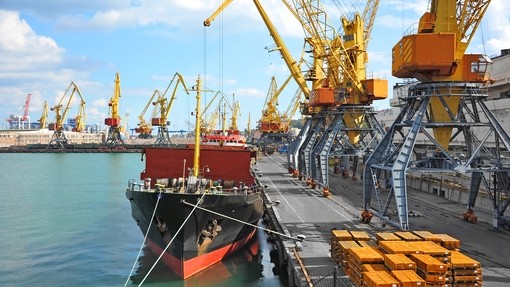Illegality and the ‘range of factors’ test

Details
In Iranian Offshore Engineering and Construction Company -v- Dean Investment Holdings SA and ors [2019] EWHC 472 (Comm) the Court considered the law relating to illegality as recast in Patel -v- Mirza [2017] AC 467.
There are a number of different ways in which a contract may involve illegality: the contract may be prohibited by statute; it may be entered into for an illegal purpose; or an unlawful act may be committed in the course of its performance. In such situations, illegality can provide a defence to claims arising in relation to the contract. The maxim goes: no court will assist a man who founds his cause of action upon an immoral or illegal act. The rationale is that it would be contrary to the public interest to enforce a claim if to do so would harm the integrity of the legal system or public policy. Hardly anyone would disagree with the court in the 1725 case of Everet -v- Williams that dismissed an action between two highwaymen who sought an account of the division of their ill-gained profits.
This can have extraterritorial application such that the English courts may not enforce a contractual obligation where performance is forbidden by the law of the place where it is to be performed. In Ralli Brothers -v- Compañia Naviera Sota Y Azna the court refused to enforce an obligation to pay freight in excess of 875 pesetas per ton where the obligation in question was to be performed in Spain and under Spanish law the payment of freight above 875 pesetas per ton was illegal. The application of precise rules of illegality has produced injustices over the years. The difficulties arise from the unclear boundaries of the ‘unruly horse’ of public policy combined with the particularly fact sensitive nature of each case. Seeking to address the problem, the Supreme Court in Patel -v- Mirza adopted a flexible ‘range of factors’ approach to the doctrine of illegality, replacing the previous rule-based approach.
This article reviews the new test laid down in Patel and its recent application in Iranian Offshore.
Patel and the ‘range of factors’ approach
A Supreme Court majority in Patel identified three considerations which should be addressed when deciding what impact illegality should have on a claim:
- The underlying purpose of the law that has been transgressed and whether denial of the claim would enhance that purpose
- Whether denial of the claim would render other relevant public policies less effective
- The need for proportionality and the danger of overkill
The Supreme Court held that a variety of factors may be considered within this framework. The Court considered that it is not possible to prescribe a definitive list of the factors, as the possibilities are infinite, but highlighted the following:
- The seriousness of the illegality
- Whether the illegality was intended
- The centrality of the illegality to the contract or its performance
- The degree of participation by the claimant in the illegal act
- The seriousness for the claimant of a potential denial of enforcement of its claim
- Whether denying enforcement will ensure that the claimant does not profit from the illegality
- Whether denying enforcement will avoid inconsistency in the law
Iranian Offshore Engineering and Construction Company -v- Dean Investment Holdings SA and ors
Iranian Offshore Engineering and Construction Company (‘IOEC’), an Iranian company, claimed that Dean and eight other defendants had perpetrated the misappropriation of US$ 87 million after IOEC paid that sum as the price of an oil rig but did not acquire same. IOEC sought equitable compensation.
Mr Justice Butcher in the Commercial Court ruled that the alleged fraud had been committed.
As a last line of defence, three of the defendants argued that IOEC should not be granted relief as the contract for the sale of the rig breached sanctions laws, specifically EU Regulation EU/267/2012 (the ‘Regulation’). The defendants contended that the Regulation was engaged in three ways:
- At the date when the contract was entered into, Article 8 and Annex VI of the Regulation together had the effect of prohibiting the sale of oil rigs to Iranian entities
- At the date when the contract was entered into, IOEC were listed in Annex IX, and Article 23 prohibited transactions with persons or entities therein listed
- Article 38 prohibits the enforcement of claims affected by the measures in the Regulation if made by persons listed in Annex IX
Butcher J found that the transaction had been structured in such a way as to circumvent sanctions. However, applying the test in Patel, he rejected the defendants’ contention that IOEC’s claim should be denied on illegality grounds. He considered the following factors important:
- IOEC’s claim was restitutionary; it was not to obtain the rig
- The contract would not have been in breach of the Regulation at the date of issue of the claim form as by then Article 8 had been deleted from the Regulation and IOEC had been removed from Annex IX
- The fraud by the defendants was not connected to the circumvention of sanctions
- The purpose of the sanctions was not to prevent the recovery of money obtained by fraud
- Denial of IOEC’s claim would not enhance the purpose of the sanctions
- Conversely, denial of the claim would harm the public policy of deterring fraud
- Denial of the claim would result in the defendants getting away with defrauded money in the amount of US$ 73.6 million and therefore would be a disproportionate response to any illegality
- Article 38 of the Regulation is not engaged because IOEC’s claim arises from the fraud perpetrated by the defendants, and not from the sale contract having become unenforceable because of the sanctions
Comment
The moral weighing-up of competing wrongs required by the range of factors test and duly carried out by Butcher J in IOEC -v- Dean, is an exercise which Lord Sumption, one of three dissenting judges in Patel who rejected the range of factors test, cautioned against. Concerned about legal uncertainty, Lord Sumption said, ‘[a]n evaluative test dependent on the perceived relevance and relative weight to be accorded in each individual case to a large number of incommensurate factors leaves a great deal to a judge’s visceral reaction to particular facts… it is an inescapable truth that some judges are more censorious than others’.
It will be interesting to see whether the flexibility of the range of factors test proves helpful or unhelpful. One useful indication to be found in Patel -v- Mirza, is that the courts will now normally permit the recovery of any money transferred under a contract which is unenforceable because of illegality. Indeed, that provides a sense test for the outcome in IOEC -v- Dean. Aside from that, the doctrine of illegality is no more predictable than it ever was.
Footnote: IOEC (being an Iranian company) was not subject to the Regulation as it applied within the territory of the EU and/or to EU operators only. However, it was Butcher J’s view that illegality and public policy considerations were in play by virtue of the fact that IOEC would have been in breach of the Regulation had it been an EU national and also because IOEC’s actions were effectively abetting breaches of the Regulation to entities to which it did apply.






